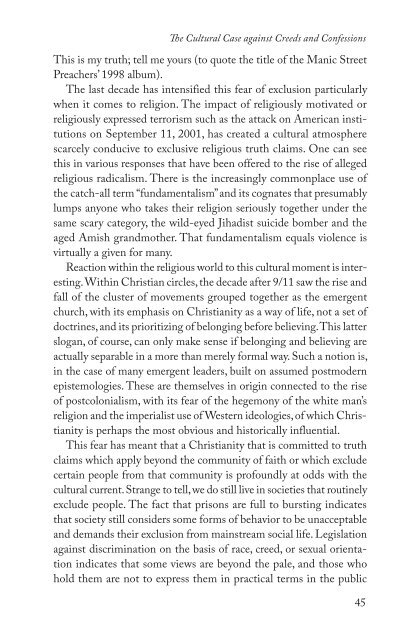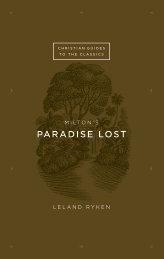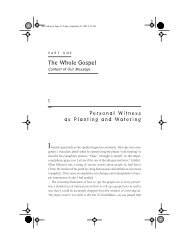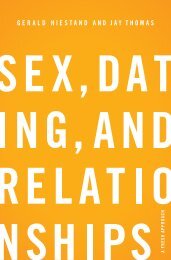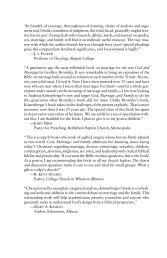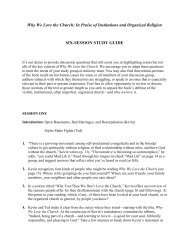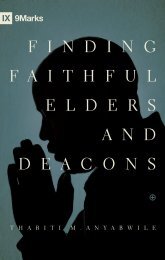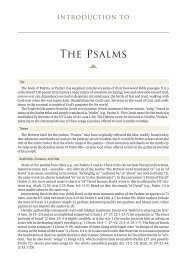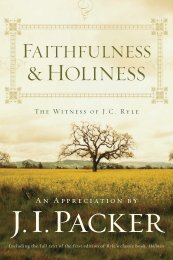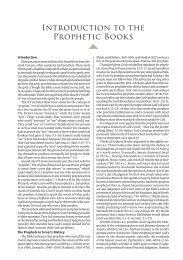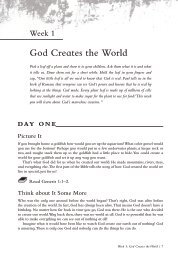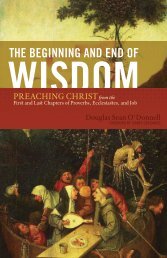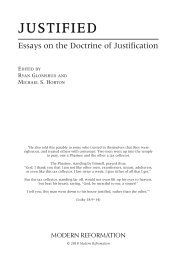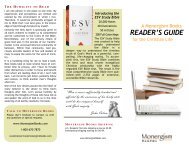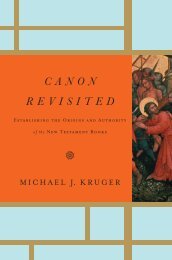The reedal - Monergism Books
The reedal - Monergism Books
The reedal - Monergism Books
Create successful ePaper yourself
Turn your PDF publications into a flip-book with our unique Google optimized e-Paper software.
<strong>The</strong> Cultural Case against Creeds and ConfessionsThis is my truth; tell me yours (to quote the title of the Manic StreetPreachers’ 1998 album).<strong>The</strong> last decade has intensified this fear of exclusion particularlywhen it comes to religion. <strong>The</strong> impact of religiously motivated orreligiously expressed terrorism such as the attack on American institutionson September 11, 2001, has created a cultural atmospherescarcely conducive to exclusive religious truth claims. One can seethis in various responses that have been offered to the rise of allegedreligious radicalism. <strong>The</strong>re is the increasingly commonplace use ofthe catch-all term “fundamentalism” and its cognates that presumablylumps anyone who takes their religion seriously together under thesame scary category, the wild-eyed Jihadist suicide bomber and theaged Amish grandmother. That fundamentalism equals violence isvirtually a given for many.Reaction within the religious world to this cultural moment is interesting.Within Christian circles, the decade after 9/11 saw the rise andfall of the cluster of movements grouped together as the emergentchurch, with its emphasis on Christianity as a way of life, not a set ofdoctrines, and its prioritizing of belonging before believing. This latterslogan, of course, can only make sense if belonging and believing areactually separable in a more than merely formal way. Such a notion is,in the case of many emergent leaders, built on assumed postmodernepistemologies. <strong>The</strong>se are themselves in origin connected to the riseof postcolonialism, with its fear of the hegemony of the white man’sreligion and the imperialist use of Western ideologies, of which Christianityis perhaps the most obvious and historically influential.This fear has meant that a Christianity that is committed to truthclaims which apply beyond the community of faith or which excludecertain people from that community is profoundly at odds with thecultural current. Strange to tell, we do still live in societies that routinelyexclude people. <strong>The</strong> fact that prisons are full to bursting indicatesthat society still considers some forms of behavior to be unacceptableand demands their exclusion from mainstream social life. Legislationagainst discrimination on the basis of race, creed, or sexual orientationindicates that some views are beyond the pale, and those whohold them are not to express them in practical terms in the public45


